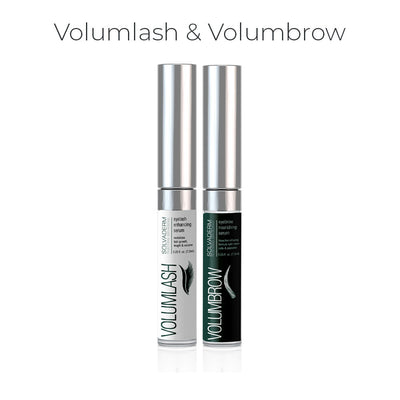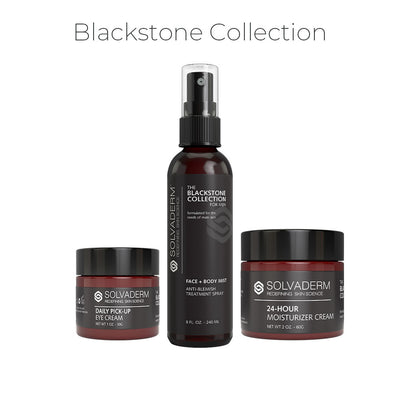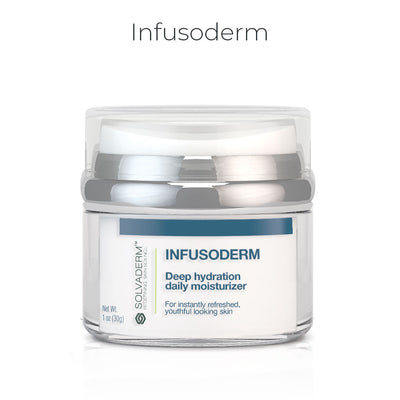As you get older, you may notice signs of age such as wrinkles and fine lines on your complexion, weak nails, and lusterless hair. Levels of key hormones play a role in aging, and balancing them can promote youthfulness. What hormones make you look younger?
Hormones such as estrogen, testosterone, progesterone, and DHEA help regulate your metabolism and immune system, support reproductive health, manage growth and development, and balance skin health, among other essential functions.
In this article, we’ll discuss the most important hormones, and how regulating them can make you look younger. In addition, we’ll explain some lifestyle and medical interventions for slowing aging and promoting a youthful appearance.
Everything You Need To Know About Hormones That Make You Look Younger
From childhood onwards, hormones play an essential role in the aging process. For example, estrogen, progesterone, growth hormones, and testosterone are responsible for many of the changes that occur during puberty, muscle development, reproduction, and sexual functioning.
Which hormones make you look younger? Many hormones support the health of the skin, for example, a decline in estrogen, DHEA, testosterone, and progesterone can cause your complexion to age in a number of ways. Fluctuating levels of some hormones can also impact the health of your hair, with a decrease causing dull, lifeless locks.
In addition, poor sleep, mood, and high-stress levels have a negative impact on aging, and these factors are regulated by secretions like melatonin and cortisol. If you want to maintain a young appearance, promoting optimal hormonal balance is the key. Let’s look at some of the essential hormones and how they impact aging.
Estrogen
Estrogen is a steroid that is essential in developing female sexual characteristics and maintaining them over time. Levels of estrogen decline in women with age, and they can also fluctuate due to factors like fatigue, increased stress, poor diet, health problems, and menopause. Does estrogen change your face? When it comes to aging, the decline can have an impact on the hair and skin.
A decrease in estrogen slows the production of collagen and elastin, which are proteins that keep the skin firm, promote elasticity, and prevent the development of wrinkles and fine lines. They also strengthen the hair, so declining levels can lead to both signs of age on the face and hair shedding.
Low estrogen can make the skin thinner, and it decreases hydration levels which could lead to a dry, dull, flaky complexion. Does estrogen make you look younger? Increasing levels of this key hormone can slow aging, tighten the skin, and decrease wrinkles and fine lines.
Cortisol
Produced by the adrenal glands and regulated by the pituitary gland, cortisol plays an essential role in the stress response. High levels of stress lead to a spike in cortisol, which has a negative impact on health and it also slows the production of collagen, leading to looser skin which is more susceptible to wrinkles, fine lines, and sagging.
High cortisol can also lead to excess oil production making breakouts more likely. Keeping cortisol levels down helps reverse signs of age on the complexion.
Testosterone
With age, levels of testosterone tend to increase in women as estrogen declines, and men experience the reverse effect. Higher levels of testosterone may promote excess oil production, however, it can also boost collagen levels. This leads to tighter skin and can help smooth wrinkles and fine lines.
Insulin
Insulin is a hormone made by the pancreas that regulates glucose production in the body. High levels are associated with signs of age like wrinkles and fine lines, so it’s important to keep levels in balance. Insulin can spike due to poor diet, particularly sugary foods, and it also increases due to poor sleep quality. A healthy, balanced diet and adequate rest every night can help to keep levels in check and promote more youthful skin.
Progesterone
Progesterone is a key reproductive hormone in women that regulates menstruation and plays an important role in pregnancy. Levels begin to decline beginning in the 30s, with a larger drop at menopause.
The decrease in this hormone leads to a reduction in collagen and elastin, which makes the skin lose tightness and elasticity and creates wrinkles and fine lines. It can also make the skin dull, dry, and lacking in radiance. Increasing levels of progesterone can help to tighten the skin and decrease signs of age, for a younger-looking complexion.
DHEA
The hormone dehydroepiandrosterone is released by the adrenal glands, and it’s responsible for the production of male and female sex hormones like estrogen and testosterone. Levels are highest in the mid-20s, at which point they begin to slowly decline. This can cause skin dryness, and it also slows collagen and elastin production, leading to sagging skin, wrinkles, and fine lines. Increasing levels of this hormone can promote healthier, younger-looking skin.
Melatonin
This hormone is released by the pineal gland of the brain when it gets dark outside, and it helps promote restful, quality sleep. Levels do decline as we age, and also due to an unhealthy diet. As poor sleep can speed up skin aging, taking a melatonin supplement helps keep your skin at its best. This hormone also protects the skin from the sun, so adequate levels may prevent premature aging from UV rays.
Growth Hormone
Human growth hormone is made by the pituitary gland, and it plays a key role in growth and development. Levels decline naturally as we get older, and they are also impacted by lifestyle habits like poor diet, low-quality sleep, and insufficient exercise.
This hormone is important in keeping the skin youthful, as it promotes collagen production and prevents cellular damage. To keep levels high and prevent signs of age, supplement with this hormone or use skincare products that include it as an ingredient.
Effective Anti-Aging Treatments
If you’re concerned about signs of age on your skin due to a decline in hormone levels, you should know that there are a number of skincare, lifestyle, and medical solutions that can make a significant difference.
Hormone Replacement Therapy
If you think your hormone levels are not in optimal balance, see a physician to discuss whether bioidentical hormone replacement therapy is a suitable option for you, which involves the use of plant-based hormones.
Medical practitioners will assess your hormonal profile and come up with a treatment plan which may involve supplementation and prescription skincare. This should tighten your skin and decrease signs of age.
Menopausal women may also receive hormone therapy for low estrogen levels, which can help balance levels for a decrease in symptoms as well as healthier, tighter, more youthful-looking skin.
Caring For Your Skin
Another effective method for keeping your complexion looking young is to build a regular morning and evening skincare routine with high-quality products such as those in the Solvaderm collection.
Depending on your age, you may want to follow an anti-aging skincare routine to tighten the complexion and reduce issues like wrinkles, lines, dryness, and hyperpigmentation. Have a look at some of the optimal anti-aging bundles by Solvaderm.
Highly recommended anti-aging products in this line include Stemuderm, which is an intensive anti-aging treatment that boosts collagen production, tightens the skin, hydrates, plumps, and smooths signs of age.
For youthful-looking eyes, add Eyevage to your routine to get rid of crow’s feet, reduce puffiness, and fade bags. For repair of damage and aging on your neck and chest, use Revivatone.
Managing Your Lifestyle
Following healthy lifestyle habits can have a significant impact on keeping your skin youthful and slowing aging. For optimal health and youthfulness, follow a healthy diet rich in nutrients and low in sugar and processed foods, and drink plenty of water daily for hydration.
In addition, you should exercise regularly to boost the blood flow to your skin and stimulate the release of anabolic hormones like testosterone. Finally, try to keep your stress levels at a minimum.
Visit your Dermatologist
If you’re concerned about signs of age on your complexion due to hormonal fluctuations or other factors, consider making an appointment with a dermatologist for medical solutions. There are a number of prescription creams that can have a significant impact, such as topical retinoids. Your physician may also recommend some effective in-office procedures.
In-office Skin Treatments
There are some highly effective, non-invasive procedures that your dermatologist may suggest. These are some of the options:
Chemical Peel: In this procedure, the practitioner uses a chemical solution to remove the outer layer of skin, leaving a smoother, healthier layer underneath with fewer wrinkles.
Dermal Fillers: This involves the injection of facial fillers that plump and tighten the complexion to smooth signs of age.
Microdermabrasion: In this procedure, the practitioner uses a device to lightly prick the skin, which promotes collagen production as it heals to tighten the complexion and smooth wrinkles and lines.
Botox: This is a neurotoxin that is injected into the skin to inhibit muscle movement so you appear to have a smoother complexion with fewer wrinkles.
Laser Treatment: A laser skin resurfacing device stimulates collagen production, for a firmer, smoother, younger-looking complexion.
FAQ
Question #1 - What hormones are anti-aging?
There are several hormones that have anti-aging benefits such as boosting collagen and elastin production and increasing hydration, including testosterone, progesterone, growth hormone, and DHEA. Decreasing cortisol and insulin levels can also help you look younger.
However, there’s one that is more powerful than all of these. Which hormone is called the beauty hormone? Estrogen is the winner in this regard, prompting high levels of collagen, elastin, and hyaluronic acid for a plump, smooth, young-looking appearance.
Question #2 - Does taking hormones make you look younger?
Increasing levels of certain key hormones like estrogen, testosterone, growth hormone, DHEA, and progesterone can make you look younger by boosting levels of collagen and elastin, for tighter skin, improved elasticity, and smoothing of wrinkles and lines. It could also boost hydration levels to eliminate dryness, and in some cases, enhance the radiance of the complexion. Increasing melatonin improves sleep, which can enrich skin health.
Bottom Line
Shifts in levels of some of our body’s key hormones can have an impact on the skin, as we have explained in this article. In some cases, hormone replacement treatment is an option, but there are also lifestyle changes and medical solutions which may help prevent or reduce skin aging due to hormonal or other factors. In addition, you should follow a regular anti-aging skincare routine.
Explore the Solvaderm collection to build the optimal regimen to keep your complexion hydrated and radiant, smooth, and free of signs of age like wrinkles, fine lines, and age spots. Even if shifting hormones are impacting your skin, our line will help preserve your youthful complexion for years to come.








